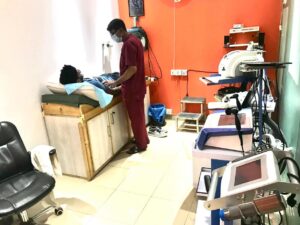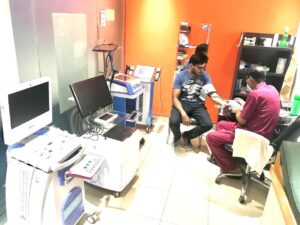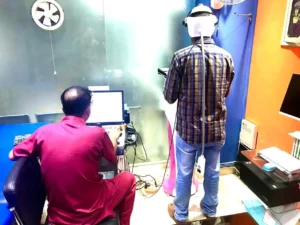Delayed Ejaculation
Delayed ejaculation can be distressing for both the individual and their partner, and it may lead to frustration, anxiety, and a negative impact on overall sexual satisfaction.
Delayed ejaculation, also called impaired ejaculation, is a sexual condition in which a person ejaculates much later than usual or has trouble doing so even when they are sexually stimulated enough. If a man has erectile dysfunction, he may have difficulty in getting or keeping an erection. Delayed ejaculation is not the same as this.
When someone has delayed ejaculation, they may be sexually active for a long time before reaching climax, or they may not be able to come at all. Delay in ejaculation can have many causes, some of which are psychological or related to relationships. Usually, treating delayed ejaculation means getting to the root of the problem. This may consist of psychotherapy or counseling to address psychological factors, couples therapy to improve communication and intimacy, changes in medication if that is a contributing factor, or other interventions depending on the specific cause identified.
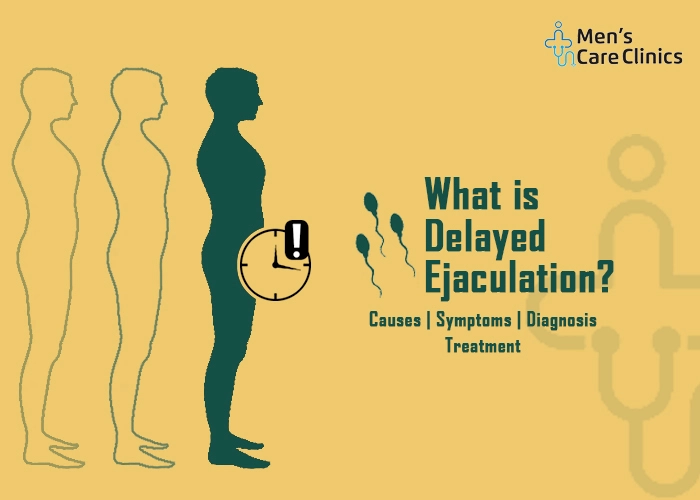
Types of Delayed Ejaculation
Delayed ejaculation can be classified into two main types:
- Lifelong (Primary) Delayed Ejaculation: This occurs when a man has experienced delayed ejaculation throughout his sexual life and has never been able to ejaculate promptly.
- Acquired (Secondary) Delayed Ejaculation:This type happens after a time of typical sexual activity. A man with acquired delayed ejaculation may have previously been able to ejaculate normally but begins to experience delays later in life.
How common is it?
Delayed ejaculation is considered less common compared to other sexual dysfunctions, such as Erectile Dysfunction or Premature Ejaculation. However, its prevalence can vary, and it’s challenging to determine exact figures due to factors like under-reporting stigma and the subjective nature of sexual experiences.
Various factors, including age, health status, relationship factors, and psychological well-being, may influence the prevalence of delayed ejaculation. It is more frequently reported in older men, and prevalence may increase with age. Research on the majority of sexual dysfunctions, including delayed ejaculation, continues to evolve.
Causes of Delayed Ejaculation
The cause of delayed ejaculation can be different, and most of the time, it’s a mix of physical, mental, and social factors. It can be hard to figure out the exact reason, and a medical professional or sex therapist may need to do a complete evaluation. These are some common reasons and things that make them happen:
- Things that affect the mind:
- How it Works Anxiety: Worries about sexual behavior or the fear of not pleasing a partner can cause anxiety, which can make it hard for some people to ejaculate.
- Stress and Anxiety: Being under a lot of stress, anxiety, or mental tension can mess up the sexual response cycle and make ejaculation happen later.
- Relationship Issues:
- Conflict or Poor Communication: Relationship problems, unresolved conflicts, or poor communication between partners can create a negative impact on sexual functioning.
- Intimacy Issues: A lack of emotional intimacy or connection with a partner may contribute to difficulties in sexual arousal and ejaculation.
- Medical Conditions:
- Neurological Disorders: Multiple sclerosis or spinal cord injuries are two conditions that can affect the nervous system and make it hard to send messages that are needed for ejaculation.
- Hormonal Imbalances: Problems with testosterone and other hormones can affect ejaculation and other sexual functions.
- Problems with the Prostate: Ejaculation can be affected by problems with the prostate, like inflammation or surgery on the prostate.
- Medications:
- Certain medications, particularly some antidepressants (e.g., selective serotonin reuptake inhibitors or SSRIs), antipsychotics, and certain blood pressure medications, can delay ejaculation as a side effect.
- Lifestyle Factors:
- Substance Abuse: Excessive use of alcohol, recreational drugs, or tobacco can contribute to sexual dysfunction, including delayed ejaculation.
- Fatigue and Lack of Sleep: Physical exhaustion or inadequate sleep can affect sexual health.
- Trauma or Sexual History:
- Past Sexual Trauma: Individuals with a history of sexual trauma may experience difficulties with sexual response, including delayed ejaculation.
Symptoms of Delayed Ejaculation
The primary symptom is the consistent difficulty or inability to ejaculate during sexual activity, even when the individual desires to do so. There are some symptoms of delayed ejaculation (DE):
- Prolonged Sexual Activity: Men who ejaculate later tend to have sexual activity that lasts a long time without reaching climax. This cannot be very pleasant for either the person or their partner.
- Frustration and Distress: Individuals with DE may experience frustration, stress, or anxiety related to their inability to ejaculate, which can further exacerbate the problem.
- Less sexual satisfaction: DE can make you feel less sexually satisfied and close, which can lower the quality of your relationship as a whole.
- Strain in Relationships: Persistent DE may result in relationship strain, as partners may feel unfulfilled or blame them for the issue.
Diagnosis of Delayed Ejaculation
Delayed Ejaculation (DE) is diagnosed by doing a complete physical exam to find out what is causing it and what is making it worse. Here are the key steps in diagnosing Delayed Ejaculation:
- Clinical History:
- The healthcare provider will conduct a detailed interview to gather information about the individual’s sexual history, relationship dynamics, and overall health.
- Specific questions will be asked about the frequency and circumstances of delayed ejaculation, any changes in sexual function, and the presence of other sexual concerns.
- Medical Examination:
- A physical exam may be done to check on the person’s general health and see if they have any conditions that could cause them to ejaculate later than usual.
- Neurological and genital examinations may be performed to rule out potential underlying issues.
- Psychological Assessment:
- Given that psychological factors often play a role in delayed ejaculation, a psychological assessment may be conducted. This can include evaluating for anxiety, depression, stress, or relationship issues.
- Assessing sexual attitudes, beliefs, and experiences can provide insights into potential psychological factors.
- Review of Medications: The healthcare provider will review the individual’s current medications, as certain drugs can contribute to sexual dysfunction. Adjustments to medications may be considered if necessary.
- Laboratory Tests: In some cases, blood tests may be conducted to check hormone levels, especially if there is a suspicion of hormonal imbalances contributing to delayed ejaculation.
- Partner Involvement: Involving the partner in the diagnostic process can provide a more comprehensive understanding of the sexual relationship and any interpersonal issues that may contribute to delayed ejaculation.
- Duration and Persistence: Diagnosis considers the duration and persistence of delayed ejaculation. The condition is clinically significant when it causes distress and is persistent over time.
- Differential Diagnosis: It’s essential to rule out other sexual dysfunctions and medical conditions that may mimic or coexist with delayed ejaculation.
Treatment for Delayed Ejaculation
After a diagnosis, appropriate treatment options can be discussed based on the underlying factors identified during the assessment. Treatment of delayed ejaculation (DE) may involve:
- Psychotherapy or Counseling: Cognitive-behavioral therapy (CBT) or other forms of psychotherapy can help address psychological issues such as anxiety, stress, or relationship problems contributing to delayed ejaculation.
- Sex Therapy: Specialized sex therapy can focus on sexual concerns and relationship dynamics. Techniques like sensate focus or systematic desensitization may be employed.
- Medication Review or Adjustment: If a patient experiences delayed ejaculation as a side effect of a particular drug, the doctor may decide to change the dosage or prescribe a different medicine.
- Hormone Replacement Therapy: If hormonal imbalances are found, this course of treatment may be advised.
- Treatment of Underlying Neurological Conditions: If neurological disorders contribute to DE, the primary focus will be managing or treating the underlying neurological condition.
- Treatment of Prostate Conditions: If prostate issues are identified, such as inflammation or enlargement, appropriate medical or surgical interventions may be recommended.
- Substance Abuse Treatment: If delayed ejaculation is linked to excessive alcohol consumption or substance abuse, addressing these issues through counseling or rehabilitation programs is crucial.
- Lifestyle Adjustments: Maintaining a healthy lifestyle with frequent exercise, a balanced diet, and stress reduction can help lessen the effects of aging on sexual function.
- Sensual Focus Exercises: To lower performance anxiety and boost comfort, these exercises progressively build intimacy and sexual touch.
- Stop-Start Technique: This technique involves pausing sexual activity at the point just before ejaculation and then resuming, helping the individual gain more control over the timing of ejaculation.
- Couples Counseling: Involving the partner in therapy can address relationship issues, improve communication, and reduce stress and performance anxiety.
Treatment at Men's Care Clinics
Suppose you are experiencing delayed ejaculation and are looking for specialized care. In that case, Men’s Care Clinics can offer a personalized approach to diagnosis and treatment, helping you improves your sexual well-being and overall quality of life.
Men’s Care Clinics are equipped to address a range of male sexual disorders beyond delayed ejaculation, such as Premature Ejaculation, Low Sex Drive, Wet Dream, Infertility, Jiryan, Size and Shape problems, Performance anxiety, and more. The specialized focus on male sexual health ensures that the healthcare professionals at Men’s Care Clinics have the expertise and experience necessary to provide comprehensive and effective care.
Book you Consultancy with the Most Experienced Sexologists!
+92-343-282-1919
Complications of delayed ejaculation (DE)
Complications of delayed ejaculation (DE) can affect both the individual experiencing the condition and their partner. While delayed ejaculation itself is not usually physically harmful, the associated emotional and relational impact can be significant. Here are some potential complications:
- Frustration and Stress:Individuals with delayed ejaculation may experience frustration, stress, or anxiety related to their inability to ejaculate. This emotional distress can affect their overall well-being and quality of life.
- Impact on Relationship:DE can strain intimate relationships. Partners may feel unfulfilled, and the lack of sexual satisfaction may contribute to communication breakdowns and emotional distance.
- Negative Sexual Experience:Prolonged sexual activity without ejaculation may lead to negative sexual experiences for both partners. This can create a cycle of performance anxiety and further contribute to delayed ejaculation.
- Reduced Sexual Satisfaction:The delayed or absent ejaculation may result in reduced sexual satisfaction for both the individual and their partner, affecting the overall sexual relationship.
- Self-Esteem Issues:Individuals with DE may experience self-esteem issues and feelings of inadequacy, particularly if they perceive their sexual performance as a measure of their masculinity or competence.
- Avoidance of Intimacy:Fear of sexual performance issues may lead to avoidance of intimate situations, further exacerbating relationship problems.
- Impact on Fertility:In some cases, delayed ejaculation can affect fertility if it interferes with the ability to deposit sperm in the vagina during intercourse.
Preventive Measures and Management
Preventive measures and management strategies for complications of delayed ejaculation may include:
- Open Communication:Promoting frank and open discussion about sexual expectations, feelings, and concerns between partners.
- Couples Counseling:Seeking the guidance of a sex therapist or couples counselor to address relationship dynamics and improve communication.
- Exploring Alternative Sexual Activities:Finding alternative sexual activities that provide satisfaction and intimacy while addressing the challenges of delayed ejaculation.
- Medical Evaluation:Seeking a medical evaluation to identify and address any underlying medical or psychological factors contributing to delayed ejaculation.
- Behavioral Techniques:Exploring behavioral techniques, such as sensate focus or the stop-start method, under the guidance of a healthcare professional.
When to See a Sexologist?
Suppose you are experiencing persistent issues with delayed ejaculation, and it is causing distress or impacting your quality of life. In that case, it may be appropriate to consider consulting a sexologist or a healthcare professional specializing in sexual health. The following signs can indicate that it’s time to consult a sexologist:
- Consistent and Persistent Delayed Ejaculation: If you consistently experience difficulty or inability to ejaculate during sexual activity, and this issue persists over an extended period.
- Personal Distress: If delayed ejaculation is causing you significant personal distress, frustration, or anxiety.
- Impact on Relationship: Delayed ejaculation is affecting your intimate relationship, leading to communication breakdowns or emotional distance from your partner.
- Underlying Medical or Psychological Concerns: If there are underlying medical or psychological factors contributing to delayed ejaculation, such as hormonal imbalances, neurological issues, or psychological stressors.
- Lack of Improvement with Self-Help Strategies: If lifestyle modifications or self-help techniques have yet to show improvement and the problem still exists.
- Concerns about Fertility: If you have concerns about delayed ejaculation affecting fertility, particularly if you are attempting to conceive with your partner.
- Interest in Professional Guidance: If you are interested in exploring professional guidance and interventions to address the issue and improve your overall sexual well-being.
A sexologist will perform a comprehensive assessment during your consultation, accounting for your past sexual experiences, medical history, and any aggravating circumstances. Based on the evaluation, the sexologist can recommend appropriate interventions, including counseling, behavioral techniques, medical assessment, or a combination of approaches.
Note: Finding the best sexologist can be difficult. However, there are several factors to consider when choosing your doctor for sexual problems. Look for an experienced doctor who is an expert in diagnosing and treating Male sexual problems, not just prescribing you a bunch of medicines without any test or diagnosis. It is also important to choose a doctor and clinic to whom you feel comfortable talking about your sexual problem. By working with an experienced sexologist or specialist, firstly you will be able to find the cause of your problem and indirectly will educate yourself about your sexual system secondly, you can find the best treatment plan for your particular sexual problem and improve your overall sexual health.
Why choose Men's Care Clinics?
If you seek specialized care and experienced professionals to address issues related to Delayed Ejaculation, you can rely on the expertise of Men’s Care Clinics. Men’s Care Clinics are dedicated to male sexual health, providing comprehensive diagnostic tests to identify and address concerns related to conditions like delayed ejaculation.
Men’s Care Clinics does a comprehensive examination to identify the circumstances causing delayed ejaculation. This detailed assessment includes a comprehensive analysis of medical and sexual history, psychological factors, and potential underlying causes. This level of thorough checkup is crucial for accurate diagnosis, and Men’s Care Clinics are specifically designed to cater to the unique needs of male sexual health.
The clinics utilize state-of-the-art equipment and advanced diagnostic tools to identify the root causes of delayed ejaculation. After a diagnosis, the clinics provide focused, efficient treatment plans customized to meet each patient’s needs. Treatment approaches may include psychotherapy, counseling, behavioral techniques, or medical interventions, depending on the underlying factors identified during the assessment.
Author: Dr, Aslam Naveed
Home
Erection Issues
Delayed Ejaculation
Recent Post

Sensitive foreskin
Erection is a complicated bodily process that is affected by many things, such as psychological,
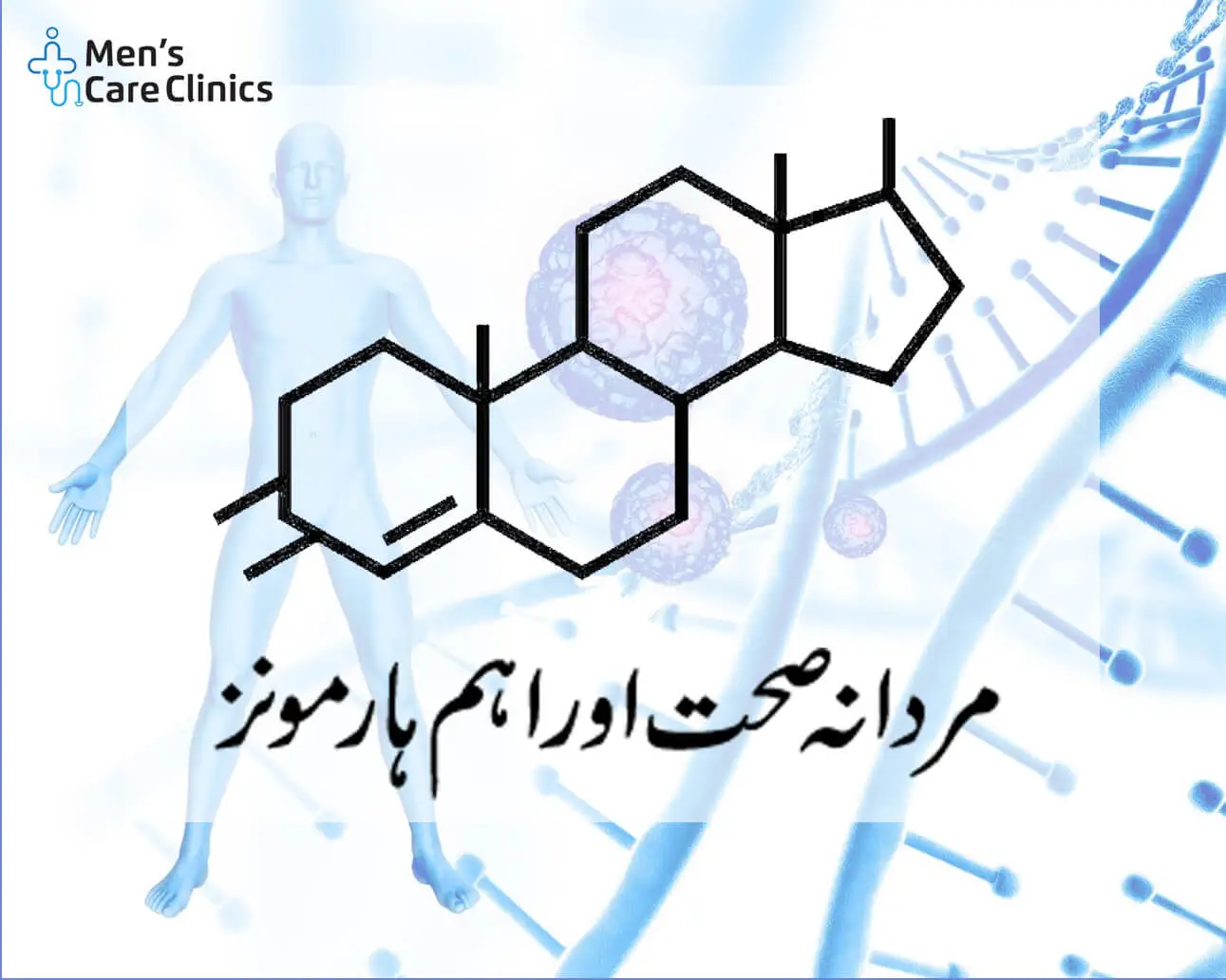
مردانہ صحت میں اہم ہارمونز اور انکا اثر
مردانہ صحت میں اہم ہارمونز اور انکا اثر مردانہ صحت میں اچھی حالت اہم ہوتی

مردانہ بانجھ پن اور علاج
مردانہ بانجھ پن اور علاج بانجھ پن جیسے بے اولادی بھی کہتے ہیں ، عام
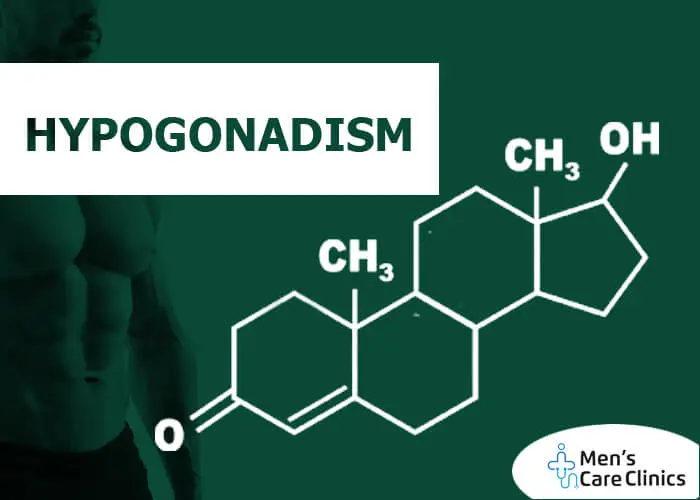
Hypogonadism, causes symptoms and Treatment
Hypogonadism Hypogonadism refers to a diminished functional activity of the testes, leading to insufficient testosterone

Hydrocele in infants and children
Hydrocele in Infants and Children: Pediatric Considerations Hydrocele is defined by a build-up of fluid

The physical examination, imaging studies, and the differential diagnosis of Hydrocele.
The physical Examination, imaging studies, and the differential Diagnosis of Hydrocele. Physical Examination A. Visual

Hydrocele Surgery and Recovery
Hydrocele Surgery and Recovery: What to Expect, Complications, and Risks A popular way to treat

Hydrocele
Hydrocele is a prevalent condition that affects many men, causing swelling in the scrotum. Understanding
Categories
Erection Issues
- Size & Shape Problem.
- Post Marital Issues.
Timming Issues
Psychological Issues
- Pre & Post Marriage Counselling.
- Fear of Sexual Failure.
- Counselling for low confidence of sexual success.
- Comprehensive trying to improve self esteem.
Book your Appointment with Best Men’s Care Clinics


